"Take Me to Your Experts"
Humanity's desire for Freedom is the Western world's central verity ....but do we really mean it?
There was a great little cartoon in The Spectator the other day:“Forget your leader, take me to your civil servants” says the alien space invader (complete with tv aerial sticking out of his head) to a bewildered old man out for a walk with his dog. A picture worth - as they say - a thousand words. An astute cartoon observation about political reality in our rich Western societies.
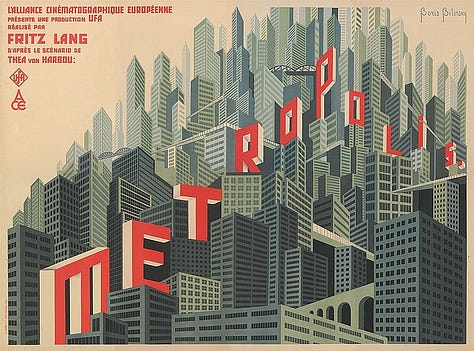
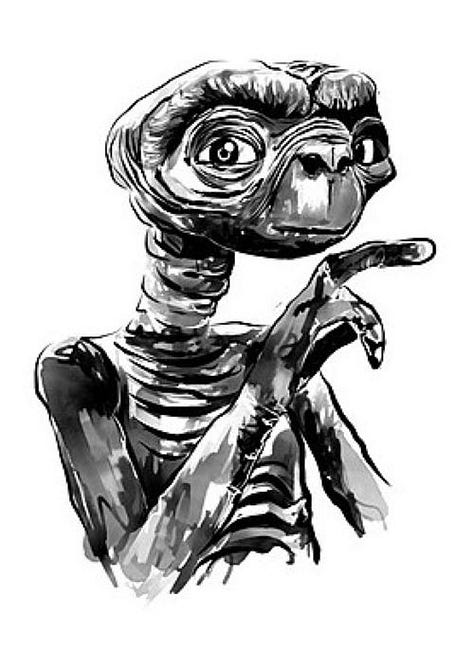
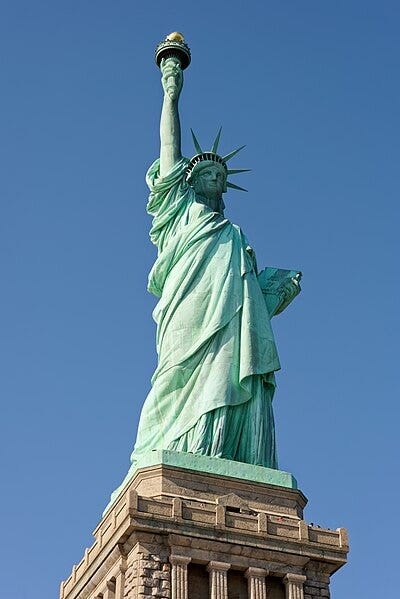
For twenty years I have been making the case (in many thousands of words) that the Wokeness goblins that drive people mad were hatched in academia. I have argued that our great folly was failing to foresee the long-term consequences of allowing our universities to become colonised by an intelligentsia intent on ‘cleverly’ unpicking the threads that held Western civilisation together. I still hold to that view. But in this essay I look at other Discontents with our Civilisation (to adapt Freud's eloquent phrase). Discontents that we must reckon into our view of the merits and demerits of life in the 21st century. In particular I question how much - on the evidence - we really do value Freedom?
Imagine There’s No Wokeness
Just supposing that our Western universities - those finishing schools for the ‘opinion forming classes’ - had somehow remained ivory towers of tradition...remained slightly stuffy places deeply sceptical of new fangled ideas. Just supposing, in other words, that the selective-victimhood Social Justice religion had not come to eclipse all other moral systems. Suppose our 21st century opinion formers were free from all their non-binary gender chattering; free from finger-wagging androgyny; free from that great sack of proxy racial guilt that ethnic-whiteness has been dragging along behind it these past few decades. How different would our 21st c. reality be had that Woke Road not been taken?
Some possible roads that late 20th c. Liberalism did not take – Nazism, Japanese militarism, Soviet communism or Maoism – we must surely be thankful for. But was there (at least in theory) an alternative to the hyper-capitalist, hyper-liberal one we have travelled? When I try to peer imaginatively down a road that I might wish we had taken, the nearest I can get – and do NOT laugh! – is something a bit like The Waltons. The road to Waltons Mountain with a 21st century update. I only mean a bit like it so don’t worry, I’m not going to subject you to an episode of Waltons the Substack. But I hope you will bear with me while I consider what the show might have to say about our post-war Western Paradise Lost.
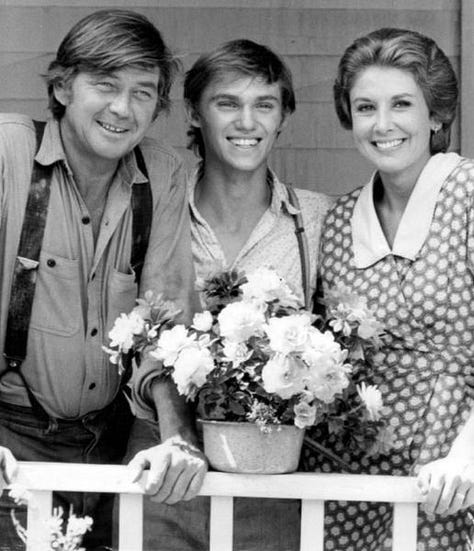
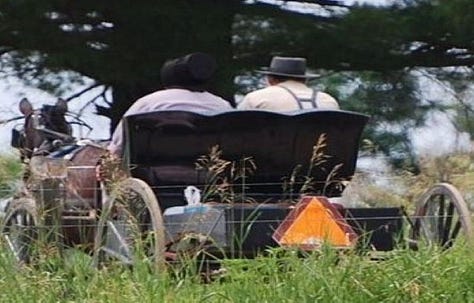
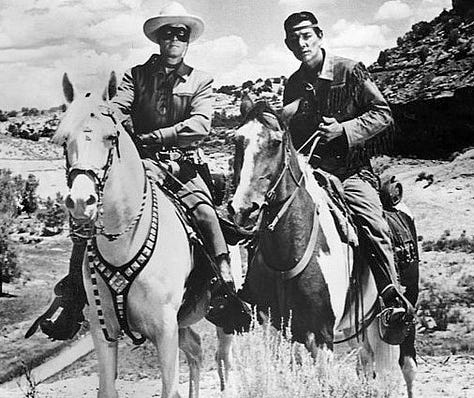
The Waltons...when America still loved itself
The world of John Boy and Jenny and their families was notionally set in the 1930s Great Depression but really it was an idealised 1970s. It was notionally in Virginia but in spirit it was more Home on the Range. Westerns used to dominate the television channels in my youth in the late 1950s to 70s to an extent that now seems unreal. The Waltons came along at the tail end of this tv era. The Lone Ranger, Bonanza, Rawhide, The Virginian....we boomer kids loved them although Progressive-minded grown-ups (uneasy about America’s affair with guns and the fate of Red Indians) perhaps not so much.
The Waltons was a kind of ‘feminised’ version of the Western. Its storylines had, for example, a modicum of agonising about Social Justice. But they were not so engorged with it that you dared not feel good about your whiteness or maleness or sexual binariness - as would be the case today. It was a place where boy meets girl and starts a family; a place where self-reliance and stoicism was your code even if you did not entirely live up to it. For all its sugar-coated Hollywood fakery it was, at the end of the day, my kind of place.
Another big socio-cultural change - or so it has seemed to me - has seen the idea of the strong, silent male heartthrob type downgraded in the female sexual imagination, in favour of the cocky, cheeky little boy type. Enough now of my romanticising...... The reality is that, if you were to try transposing mom & apple pie, love of country and a stoical, self-reliance vibe into the 21st century, you would have to negotiate a string of treacherous socio-cultural rapids. Wokeness or no wokeness the ground was, in any case, shifting under that mid 20th c. Western civilisation.
On the plus side is all the recent technological wizardry that few of us would truly want to relinquish. In particular the vast digital information eco-system that we all too easily take for granted. But there are downsides to this. One, for many of us, is its ever greater surround-sound encroachment into our lives. In the haunting words of British philosopher John Gray:
“Instead of the daily encounters that enable communities to sustain a common life, random collections of solitary people are protected from each other.... Rather than connecting in troublesome relationships, they are turning to cyber-companions for frictionless friendship and virtual sex. The contingencies of living in a material world are being swapped for an algorithmic dreamtime. The end-point is self-enclosure in the Matrix – a loss of the definitively human experience of living as a fleshly, mortal creature..... the defiant smile in the face of cruel absurdity, the glance that began a love that changed us forever, a tune it seemed would always be with us, tears in the rain.”
But alongside this cyberfication of our lives there are other, more prosaic, downsides...an ever-expanding bureaucracy.....and a tsunami of ‘experts’ which are the focus of the rest of this essay. I have no notion of how we might rid our culture of these downsides in some win-win way. What was it Churchill said: “I have nothing to offer but.... Bureaucracy and Experts.” Why bother then, you might ask, to pick over unappealing aspects of modern life that you can’t do anything about? My answer – and I hope yours too – is that we just like to notice underlying trends in the zeitgeist...and to call things by their right names.
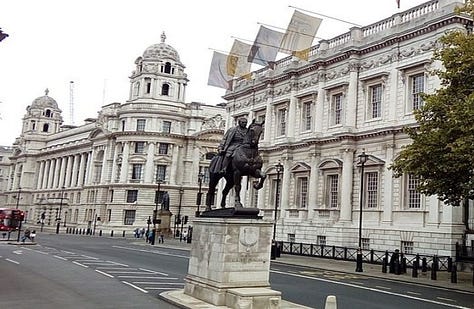
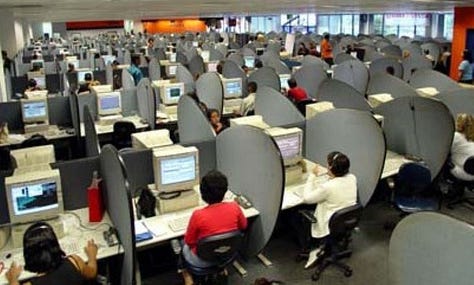
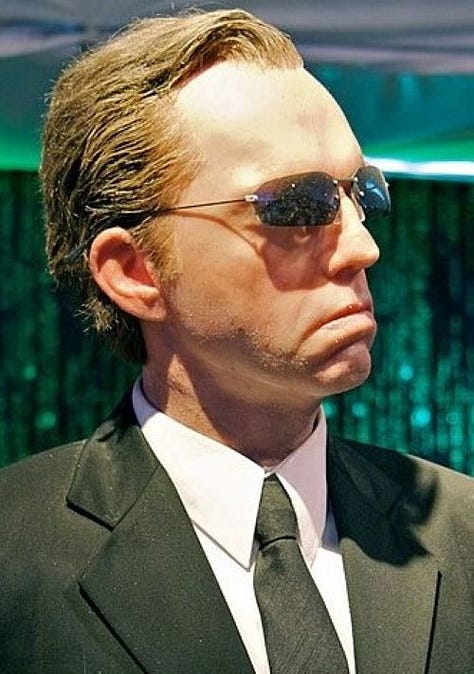
Bureaucracy
It is starting to dawn on many political conservatives that their elected politicians are increasingly becoming an irrelevance because the actual business of government is largely in the hands of unelected civil service bureaucrats anyway - and these bureaucracies are permanently left-leaning. (The British Tory Party is an extreme case in point.) But apart from that observation, my theme here is not to rail against the bureaucratisation of modern society – not as such anyway. That would be straw manning since who of the world’s hundreds of millions of bureaucrats would actually sing its praises?.... the ticking of endless boxes for something or other; the “we are receiving an unusually large volume of calls just now”; the computer that says no; the efficiency drive resulting in (wouldn’t you just know it) more staff employed to deliver a poorer service?
No my theme here is that it would seem that our modern advanced societies are just stuck with their modern equivalent of Dickens’ Circumlocution Office. Stuck with both its dreary nannying state bureaucracy and its late-stage-capitalist blah blah.
Nobody really has any idea how to run an advanced urban society without it. What could realistically be done about the general Kafkaesqueness of the interface between us as individuals and The System? The question - as this Substack article asks - is “Where does the essential task of holding society together end and.... fluff and overregulation begin?” You could vote maybe for a government Bureaucracy Czar charged with ruthlessly stripping away all unnecessary bits of it....but we all know how that would end.
In the 1980s Margaret Thatcher and Ronald Reagan set their political stall around reining it in - and they really did try but they failed anyway. Yes, America has a significant fringe tradition of separatism from the state leviathan (most famously the Amish) but not even the fiercest 21st century backwoodsman has any idea how this could be scaled up. So I will now ride out of the bureaucracy part of my essay leaving behind just a trail of choice epigrammatic quotes. Have a nice day:
“Bureaucracy is the death of any achievement.” Einstein
“Bureaucracy, the rule of no one, has become the modern form of despotism” Mary McCarthy
“If you put the federal government in charge of the Sahara Desert, in 5 years there’d be a shortage of sand.” And “In a bureaucratic system, useless work drives out useful work.” Milton Friedman
Or my favourite: “There is something about a bureaucrat that does not like a poem” Gore Vidal
Experts, Experts Everywhere....I think I need a shrink.
We will always need genuine experts....people who know a lot more about some specialism than the rest of us. Of course when we need major surgery, we don’t want to do it ourselves or get our mate to do it cheap. I am not talking about any of that. I trust you will understand that I am not remotely intending to bad mouth real experts....only ‘experts’.
In 2024 it feels like we now have ‘experts’ advising you (always for your own good mind) on every single aspect of your daily life from the moment you can talk till the moment they carry you out of the care home in a box. And it seems like you cannot get more than two sentences into an MSM article or broadcast these days without an ‘expert’ being invoked as an authority on whatever is being discussed.
I have to tread a bit warily here because, alongside the nanny state bureaucrat kind that nobody actually asked for, there is also is a robust public appetite for the kind of celebrity ‘experts’ that any flick through the tv channels will reveal. I am also vaguely aware of the phenomenal rise of the social media ‘influencer’...and how this affords some of them a millionaire (billionaire?) lifestyle. I also know that they seem to float a lot of people’s boats... and Well it’s a free country. Ish. Whereas I am plain expertophobic.
So is this socio-psychological Expertocracy phenomenon something else that was hatched in our Monasteries of Groupthink? I think not. Other forces have also been at play. I believe it can - in part – be accounted for in terms of a nexus between the ever-burgeoning scope of digital media interacting with an inherent Follow-my-Leader aspect of human nature. This latter has been part of our human story since time immemorial – from war lords to Rock groupies. But the internet age has created so much space - such a fertile soil - in which it could grow. [It is a truism that many things grow to fit the space available.]
The examples which follow are just a random jamboree bag of things that have washed up on my personal shore from the great ocean of ‘expertise’ out there. (Had I planned this essay farther in advance I could perhaps have assembled some juicier ones.) And as for whether I can prove that our Western culture has come to be in thrall to this master-and-pupil socio-psychology?....well I guess we’d now have to ask the experts about that.
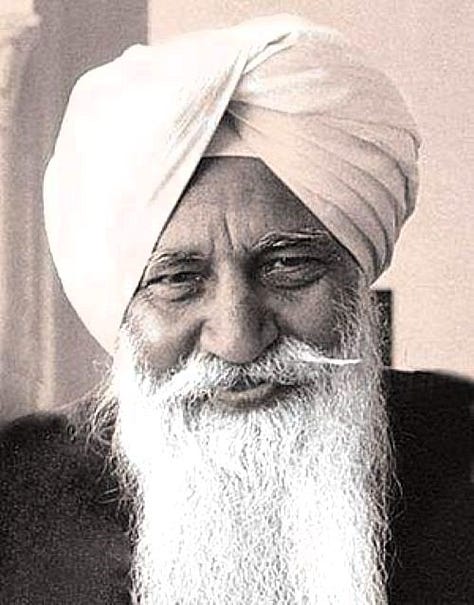

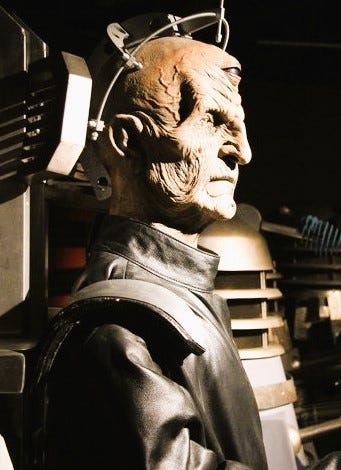
The Daytime TV Celebrity Expert Guru
What we would now call ‘lifestyle experts’ existed in the old days too but, in the still powerful Land of the Free cultural myth, conceptually there were none (apart from the occasional Sundance Kid with the exceptionally fast draw). You were your own man….or woman.
The way I view the phenomenon of the daytime tv-expert age is that it stems from a psychology that I think of as ‘Playing School’....as in the children’s game: “Let’s me be teacher....and you be pupil”. Some naturally gravitate towards the former role and others (many more) naturally gravitate towards the latter. Examples are legion:
Celebrity chefs - cooks who’s ‘entertaining’ personality helped them get lucky. (Oh I know lots of people love them so maybe I should just button it.)
Competitor shows like Artist of the Year featuring talented amateur painters whose humblingly impressive work you do very much want to see. But in the ‘let’s play school’ format of all such shows, they must stand in line to be judged by ‘art experts’ and celebrity ‘presenters’.
Newspapers that I occasionally dip into – like The Telegraph and The Times - are awash with ask the experts stuff. Yesterday, for instance, it was: How to know if you’re addicted to work? The sane answer of course should be: Ask your Bloody Self whether you are! Or “I’ve got a £5 million pension pot; can I retire, do you think Mr Expert?”
Advertisers, of course, latch on to the grift – as in the ‘expert’ who knows which toothpaste you should buy.
The Mental Health Expert
Bad Therapy - best-selling new book by Abigail Shrier - is a devastating indictment of our vast and ever expanding Mental Health Industrial Complex. In one chilling anecdote she: “tells how she took her ten-year-old son to a clinic for help with a stubborn stomach ache. During the visit, a nurse used a survey to interview the boy with questions like: “1.In the past few weeks, have you wished you were dead? 2.In the past few weeks, have you felt that you or your family would be better off if you were dead? 3.In the past week, have you been having thoughts about killing yourself? If yes, please describe.” Keep in mind a few facts of the case: this was an appointment for a stomach ache. The child was only ten years old. The health-care worker had no indication of any mental distress.”
In a similar vein, no regular Substacker could fail to be aware of the reaction that has set in post-pandemic to the way in which massively destructive lockdowns were ‘expertly’ put in place across the planet. Which neatly brings us to.....
The Misinformation Expert
Now here it gets a bit scary. Here we’re not just talking about a tango between annoying jumped-up celebrities and their willing followers. We’re talking about a kind of resurgent Maoism. You cannot, in 2024, have escaped hearing or reading about chattering class agonising (in both the MSM and the corridors of power) on the subject of how we citizens need legislation to protect us from a supposed epidemic of ‘fake news’ and ‘misinformation’.’ ‘Misinformation experts’ are very concerned about this. I on the other hand, can think of nothing more chillingly Orwellian than the concept of a misinformation expert. Anyone with a reasonable grasp of the interface between human nature and man’s inherent epistemological limitations could not seriously entertain such a notion without choking on their hubris sandwich. This CBS News item manages it though......so cosily wrapped up is it in its own legacy-media self-satisfaction.
Anyone got a realistic solution to this latest elite psychosis please let me know? You’ll get a big wearable sticker off me....one that says Expert.


You answered your own question in great part. The bureaucratic undertaking crowds out useful activity, in fact like an aggressive weed, it steals the nutrients from the soil and blocks the sunlight so actual useful work is harder to get done. The organization man schemes throughout the day, looks for ways to expand his power while the practitioner is tied up with actual stuff that is urgently needed. This puts the practitioner at a distinct disadvantage in this inevitable power struggle. It’s a full time game for the desk jockey, but not for the practitioner.
Since the bureaucrat can’t sell anything, sew up a laceration,write a novel, grow some food, they have to justify their grey existence with make work projects or slow walking things so it appears they have stuff to do. In government positions they are generally completely unaccountable.The British bureaucracy is notorious for this stuff. We Americans have caught up. The Brits and the Commonwealth nations have the “Permanent Secretary”. That name alone is emblematic of the problem.
So they grow their bureaucracy and then they have meta-benefits. Now they are such a large group that they are a political force, a financial force, and they take on a life of their own wholly removed from the original job description. Thus we get to where we are.
Wokeness is just another layer, another control tool for the administrative class. It’s particularly effective because it can be applied to everyone and has the additional benefit of removing power from the powerful and handing it to HR or some other parasitic department.
Underneath all of this is psychology. Some of us don’t want to spend our days scheming and controlling other people. We want to create, heal, build, whatever. We don’t believe it’s our right to tell others how to live, to force our beliefs onto others. But that’s not everybody. There is a large group of humans who crave authority. And almost never are they the people you’d like in that position.
Thanks Graham. An excellent read. It’s maybe an obvious point, but I think that the proliferation of the expert class is, in part, simply a result of the bureaucracy’s desire to grow.
It needs to justify the new department, the extra £5m of funding, and experts are ready to provide that justification by explaining logically that there is a problem which can only be fixed by an extra department, or £5m of funding.
This is clearest with DEI. Which, ideology aside, is simply an example of ‘experts’ creating a non existent problem, and then demanding experts are brought in to fix it. And so the bureaucracy grows.
Celebrity chefs however, defy all logic.